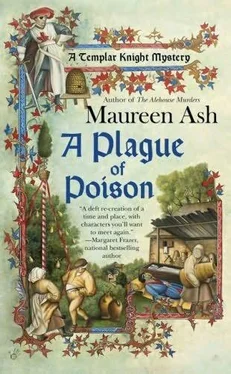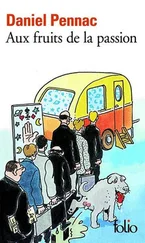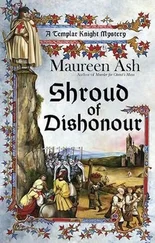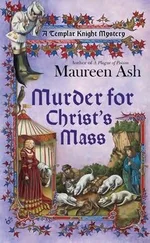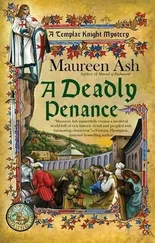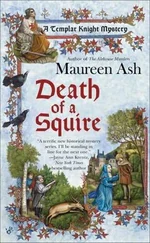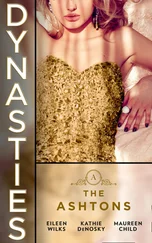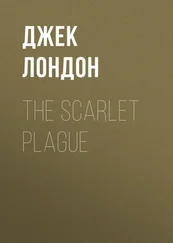Maureen Ash - A Plague of Poison
Здесь есть возможность читать онлайн «Maureen Ash - A Plague of Poison» весь текст электронной книги совершенно бесплатно (целиком полную версию без сокращений). В некоторых случаях можно слушать аудио, скачать через торрент в формате fb2 и присутствует краткое содержание. Жанр: Исторический детектив, на английском языке. Описание произведения, (предисловие) а так же отзывы посетителей доступны на портале библиотеки ЛибКат.
- Название:A Plague of Poison
- Автор:
- Жанр:
- Год:неизвестен
- ISBN:нет данных
- Рейтинг книги:3 / 5. Голосов: 1
-
Избранное:Добавить в избранное
- Отзывы:
-
Ваша оценка:
- 60
- 1
- 2
- 3
- 4
- 5
A Plague of Poison: краткое содержание, описание и аннотация
Предлагаем к чтению аннотацию, описание, краткое содержание или предисловие (зависит от того, что написал сам автор книги «A Plague of Poison»). Если вы не нашли необходимую информацию о книге — напишите в комментариях, мы постараемся отыскать её.
A Plague of Poison — читать онлайн бесплатно полную книгу (весь текст) целиком
Ниже представлен текст книги, разбитый по страницам. Система сохранения места последней прочитанной страницы, позволяет с удобством читать онлайн бесплатно книгу «A Plague of Poison», без необходимости каждый раз заново искать на чём Вы остановились. Поставьте закладку, и сможете в любой момент перейти на страницу, на которой закончили чтение.
Интервал:
Закладка:
“Many people are adept at hiding their true nature behind a mask of innocence, de Marins, as you should well know,” Nicolaa said. Bascot knew she was reminding him of how he had been gulled once before, during his investigation into the murders of four people that had been found slain in an alehouse. “The evidence against Wilkin is overwhelming,” Nicolaa continued. ”There is his hatred for the bailiff and his close involvement with the honey when it is harvested and sold. He also has access to all of the kitchens where it was found. Do not let yourself be taken in by his ingenuous manner.”
Bascot nodded his acceptance of her caution, and when she asked him if he would go to the Templar enclave and tell Everard d’Arderon of the imminent arrest of one of the Order’s tenants, he rose from his seat. It was not a task he relished. The preceptor had already been disturbed by the news that a Templar bailiff might be guilty of rape; for him to learn that yet another person connected to the Order was now accused of a far more serious crime would greatly distress him.
As Bascot had feared, his visit to d’Arderon that afternoon proved that he had been right to be concerned. The preceptor heard the news in silence and then said, “I have failed in my duty to the Order, Bascot. If both the bailiff and the potter are guilty of these sinful acts, I must ask to be relieved of my post.”
Bascot made an attempt to convince his friend that he should not feel responsible for crimes committed by others, but his efforts proved useless.
“I fought for Christ on the field of battle for many long years,” d’Arderon said, “and, through His grace, survived. Had it not been for the illness that overtook me in the Holy Land I should still be there, and would willingly have died in His service. But I see now that I have been guilty of the sin of arrogance. If I had taken the trouble to express more interest in those who are tenants of the Order, it may be that the potter would have come to me with his charge against the bailiff and his need for retribution would have been satisfied. Because I did not, six people are now dead.”
Bascot knew how much d’Arderon missed the life he had led prior to becoming preceptor of the Lincoln enclave. Recurring bouts of a tertian fever had forced the Order to remove him from the harsh climes of Outremer and assign him to duties in a land where the weather was more hospitable. But he was an able preceptor, faithful in ensuring that the profits from property held by the Order and from the commodities they traded in were sent in their entirety to fund the cost of arms and equipment needed by brethren overseas. He also gave wholeheartedly of his own martial abilities to train the younger men that were sent to him for instruction.
Bascot felt a fresh surge of anger rise at the havoc the poisonings had wrought. Not only had the lives of six people been taken, but great sorrow had fallen on those who had been in some way associated with each of the victims-Clare, the young sempstress who had lost her betrothed when Ralf had been killed; Thomas, the squire who had lost his lord when Haukwell died; Nantie, the old servant, left alone and homeless when le Breve and his family perished; Brother Andrew, who blamed himself for the death of a patient; and now d’Arderon, who felt that negligence on his part had driven a man to commit heinous crimes.
As he left the preceptor, he sent up a fervent prayer that succour be given to all of those who were now suffering such unwarranted distress.
It was early in the evening by the time de Laubrec returned with his prisoner. Bascot had been asked by Nicolaa de la Haye to interrogate Wilkin after he was incarcerated, but before he did so, he went to speak to the marshal and asked him how the potter had reacted to his arrest.
“He seemed genuinely shocked,” the marshal said, his long, narrow face sceptical, “and tried to argue with me at first, but desisted when one of the men-at-arms gave him a clout about the head. Unfortunately, he cut his arm quite badly when he landed on a large earthenware pot as he fell. It broke into pieces and one of them gave him a nasty gash. The leech is with him now, stitching it up.”
De Laubrec went on to tell Bascot that he had searched the apiary and found a wooden box containing some strange-looking roots in the potter’s shed. “I thought it might be the plant he used to make the poison, so I brought it back with me and gave it to Lady Nicolaa. She said she’ll ask Brother Jehan if he can identify it.”
These would be the roots of Helleborus niger that Dido had told him Margot kept for treating an illness in their cow. It seemed that Wilkin had used them for another, more nefarious, purpose. Bascot left de Laubrec and went into the holding cell. Since his visit to d’Arderon his anger at the poisoner had hardened into a cold fury. If the potter, as it seemed, was the culprit, the Templar vowed he would make him pay, and pay dearly, for his crimes. As he came through the door, Martin had just finished sewing up the wound in the potter’s arm and was binding it with strips of linen. The leech’s florid face was rigid with distaste, and as he packed up the small bag that contained his instruments, he said to Bascot, “Unless the baseness in this man’s soul rots the wound, it will heal. He will be fit and ready for the hangman’s noose.”
Bascot made no reply, and Martin left, slamming the door to the cell as he went out. Wilkin was slumped on the floor, his sallow skin ashen. His injured arm was held close in front of him, the narrow bands of white cloth which bound it luminous against the darkness of his jerkin. There was a livid bruise on his forehead that must have been caused by the blow from the man-at-arms. He gave no sign of being aware of Bascot’s presence, and the Templar had to call his name before he lifted his head.
“You know why you are here, potter. What have you to say to the charge?”
Wilkin shook his head weakly and licked his lips before he answered. “The knight who brought me here said that I am accused of putting poison in the honey that comes from our apiary. He said I am a murderer.” He looked up at Bascot with dark, pain-filled eyes. “I did not do it, lord. Why would I wish to kill anyone?”
“Perhaps in revenge for the rape of your daughter?” Bascot’s tone was icy.
The potter’s jaw sagged. “Rosamunde? What has she to do with this?”
“I have been told that you believe the bailiff, Ivor Severtsson, to be guilty of violating her and getting her with child. Are you going to tell me that is not so?”
A shadow of anger crossed Wilkin’s face. “No, I do not deny that I accused him. And it is true, he did rape her. She has never been right in her mind since then, and he is the cause of her misery. But I still do not understand why you believe I would poison anyone because of it.”
“One of the pots of poisoned honey was found in the home of a spice merchant, Robert le Breve, after he and his family died from eating a dish that contained the honey. That poisoned pot was one that was originally given to Reinbald, a merchant of Hungate, by his nephew, Ivor Severtsson, and it came from the Nettleham apiary.” Bascot noticed that the potter’s eyes flickered with unease when he mentioned the merchant’s name, and he pressed the potter harder. “Was it your intent to kill Severtsson when he dined at the home of his uncle in retaliation for the attack you believe he made on your daughter?”
Wilkin looked at Bascot in bemusement for a few moments before he answered. “Lord, I did not do this thing of which I am accused. I hate the bailiff and would do him harm if I could, but I would never murder him or anyone else. I swear it by the precious blood of Our Lord Jesus Christ.”
Читать дальшеИнтервал:
Закладка:
Похожие книги на «A Plague of Poison»
Представляем Вашему вниманию похожие книги на «A Plague of Poison» списком для выбора. Мы отобрали схожую по названию и смыслу литературу в надежде предоставить читателям больше вариантов отыскать новые, интересные, ещё непрочитанные произведения.
Обсуждение, отзывы о книге «A Plague of Poison» и просто собственные мнения читателей. Оставьте ваши комментарии, напишите, что Вы думаете о произведении, его смысле или главных героях. Укажите что конкретно понравилось, а что нет, и почему Вы так считаете.
